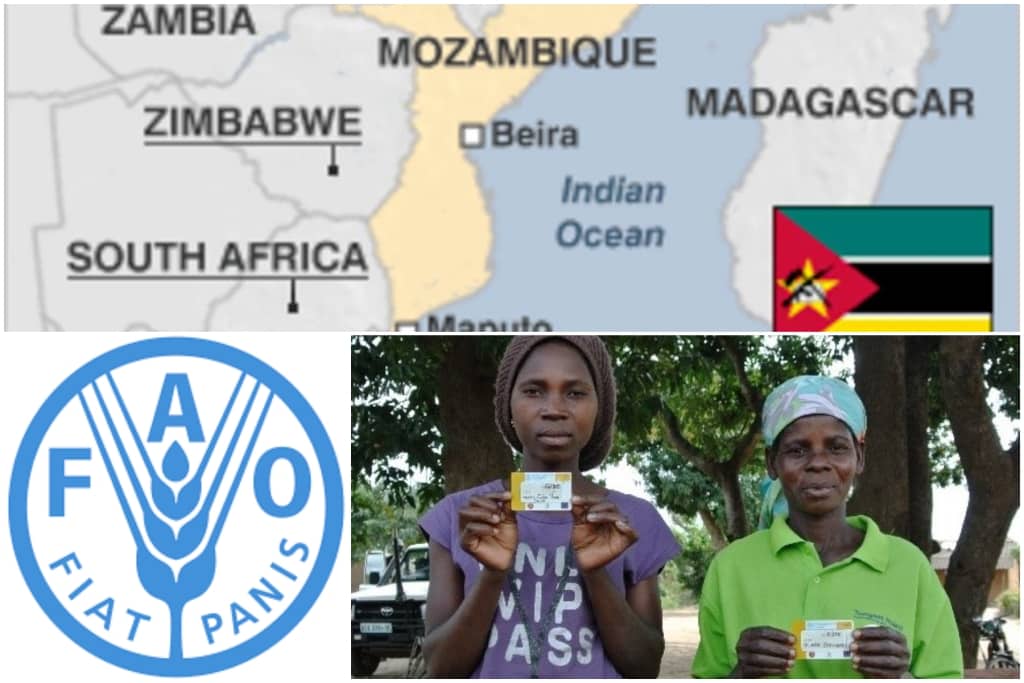Using technological solutions to improve Smallholders Farmer’s Access to Agricultural Inputs in Mozambique
About 80% to the country’s GDP, with approximately 4 million farm units and responsible for approximately 95% of labour force at national level, the Smallholder Farming sector is fairly homogenous. Agriculture provides farming households’ main source of income, and supports nearly all the household activities, but just barely. Families consume what they grow, trade their farm surplus for other necessities and sell their crops for income. However, households often fall short of their monthly needs. Although, they work hard and have high aspirations most of the households live at or below the poverty line, and many live in extreme poverty.
Traditionally, smallholder farmers in Mozambique are used to receive agricultural inputs free of charge from the Government and/or from development partners, as they do not have sufficient income to afford quality seeds, fertilizers and modern farming equipment at the right time and in the right amounts. This, coupled with the lack of seasonal credit lines, has a significant impact on yields and, at the time of harvest, often forces farmers to sell their surplus crops to intermediaries at lower prices.
Smallholder farmers do not use formal financial services such as bank accounts, mobile money or microfinance institutions (MFIs) and often live far from banks and microcredit institutions branches. The majority of smallholder farmers has never been in a bank and most are not aware of the opportunities of mobile money (i.e. money sent from phone to phone using a simple text-messaging system (Batista and Vicente, 2012).
In sum, smallholders often manage their household finances outside any formal channel and very few rely on local, informal lending, savings circles, or similar mechanisms.
In addition, smallholder farmers in Mozambique are highly vulnerable to natural shocks (e.g., floods, prolonged droughts). This vulnerability affects not only the farmers’ well-being but also hinders economic and social growth, directly through loss of means of production.
In 2014, the Government of Mozambique and FAO agreed that targeted “smart subsidies” using e-vouchers coupled with a participatory agricultural extension approach (FAO Farm Field Schools – FFS ), could be a powerful tool to facilitate farmers’ access to seeds, fertilizers and other inputs needed to increase production and productivity.
FAO is aware of barriers that must be removed to enable most of farmers’ productive potential. In Mozambique, the percentage of farmers with access to credit has declined steadily over the past 10 years, increasing inefficiencies in the production and distribution chain and reducing the competitiveness of domestic crops. The limited development of small and medium-scale agro-industry further reduces market opportunities for smallholder farmers. With limited market prospects, farmers and especially small-scale farmers find it difficult to access the much-needed capital to invest and to transition from subsistence to a more market-oriented farming.
In an effort to overcome these barriers, FAO within the framework of the Millennium Development Goal1c (MDG1c) Programme launched at the beginning of the agricultural season 2015/2016, an electronic voucher (e-voucher) scheme with the dual objectives:
i) improve access and use of quality agricultural inputs (e.g. seeds and fertilizers)
ii) strengthen the distribution chain of agricultural inputs through the involvement of various actors including agro-dealers (shops and retailers selling agricultural inputs at district level) and input producers (seed and fertilizer producers).
The e-voucher system is a flexible market development tool that allows farmers to buy certain types of inputs from agro-dealers that accept the e-vouchers as partial payment. The agro-dealers redeem the e-vouchers based on a settlement report that is produced every two weeks by the system. To avoid market distortions the prices of the inputs available at the agro-dealer’s shops are in line with the prevalent market prices in the region.
In other words, the e-voucher is a subsidy for the purchase of inputs, co-financed by the beneficiary farmer. With the e-voucher system, farmers have more freedom to decide what, where and when to buy their inputs, thus ensuring that they are the main decision-makers in the process.
The e-voucher scheme, the first of its kind in Mozambique, has been developed by FAO in cooperation with ADM tested in Manica Province during the agricultural campaign 2015-2016 and is currently used in Manica, Zambezia, Nampula and Sofala provinces, reaching over 23,000 beneficiaries who are also for the most part members of the FAO Farm Field Schools (FFS).
In the near future, it would be possible to integrate the e-voucher system with other types of interventions such as unconditional cash transfers in situations of emergency. FAO’s consolidated beneficiary database can reduce registration costs, minimize fraud and ensure transparency on the use of the funds allocated. The database comes with access passwords that are granted to managers of the system (e.g. Ministry of Agriculture and Food Security – MASA).
In Mozambique, it is expected that the e-voucher will help in the management of other activities (e.g. cash for work, social protection, etc.) and services provided to smallholder farmers by State Institutions in cooperation with partners (donors and private sector), and in the long-term, support in the development of an efficient private input distribution sector.
In fact, despite the number of financial institutions operating in the country, the level of financial inclusion in Mozambique is still relatively low (at the end of 2014, approximately 24% of the adult population had a bank account) . In this context, the e-voucher represents a first step towards the inclusion of a rural population that has a low literacy level and does not have access to basic financial services such as bank accounts, savings and loans. Through the e-voucher system, beneficiaries improve their knowledge of electronic money and learn about its advantages in terms of security (i.e.: use of a PIN code).









































































